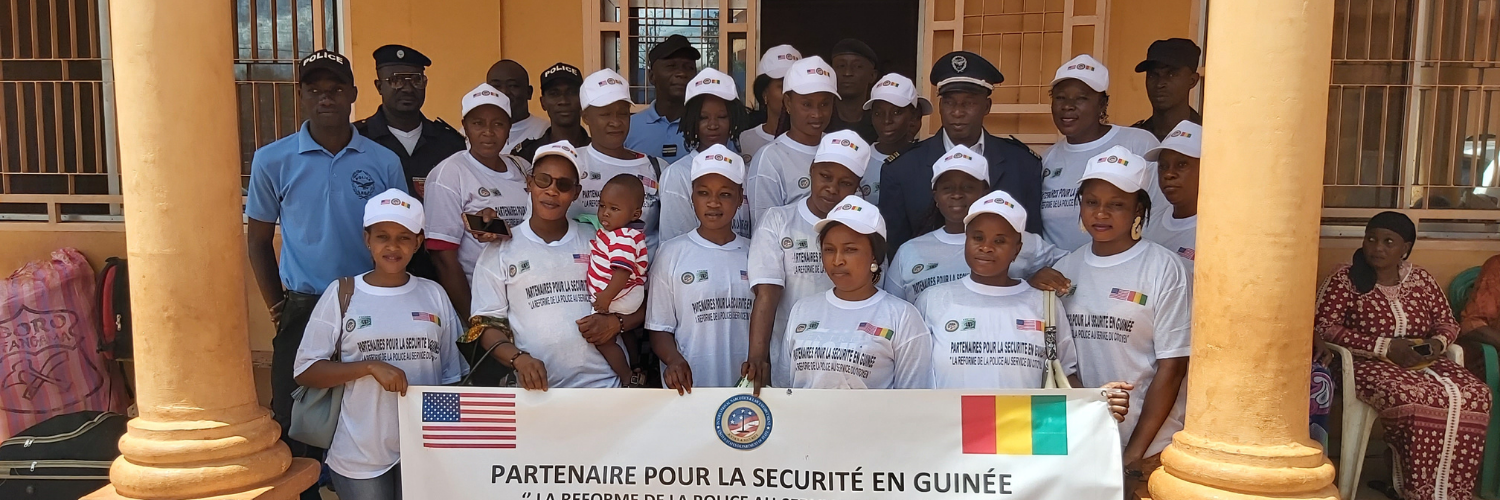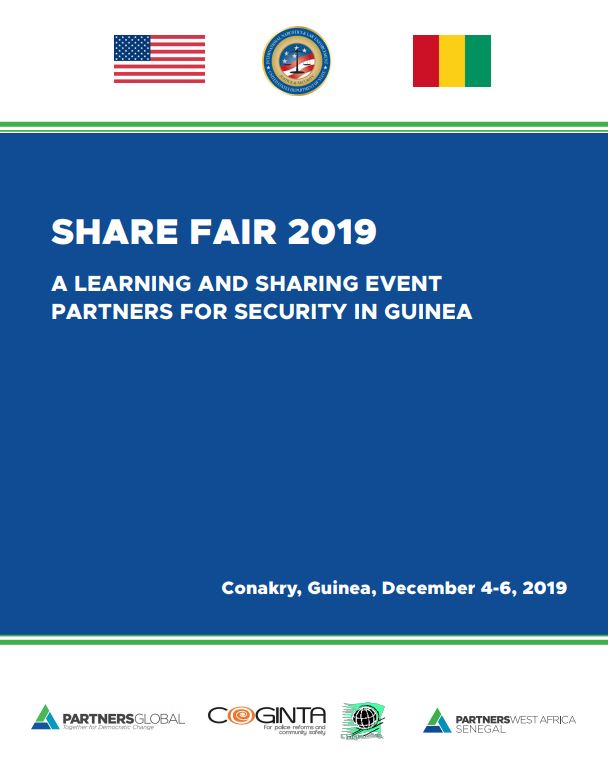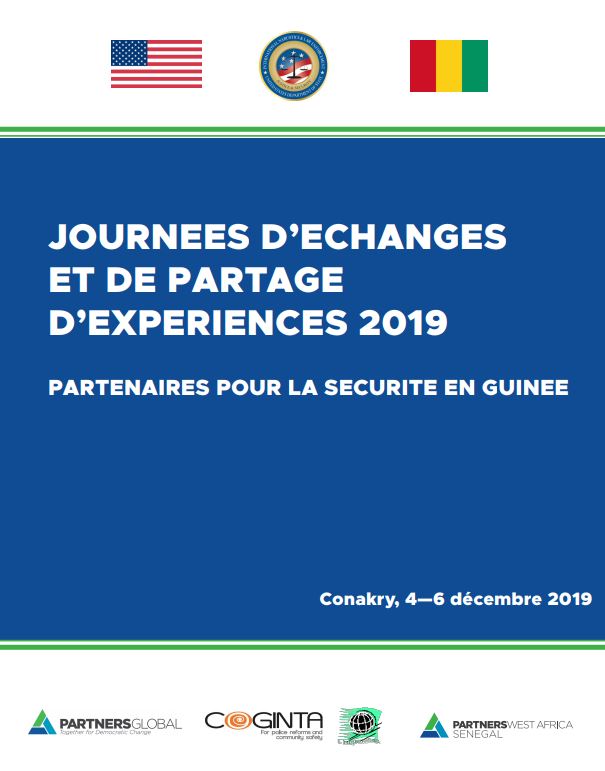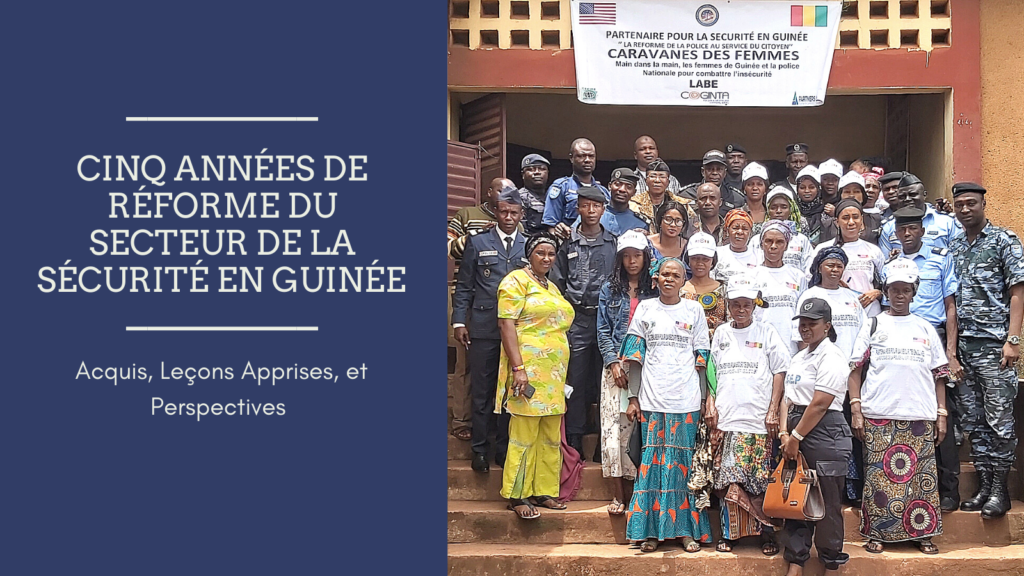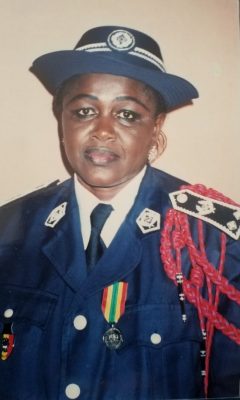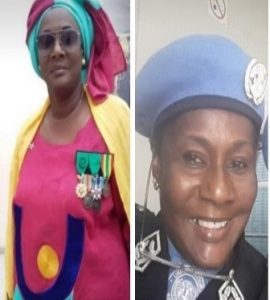Five Years of the Partners for Security in Guinea project
Through its five years (2015-2020) the Partners for Security in Guinea project worked to build trust between police and citizens and reform Guinea’s security sector through community policing. It took collaboration among the Guinean government, law enforcement, community leaders, and everyday citizens and a committment from all to sharping a security sector that was more inclusive and effective as well as rights-respecting.
Take a look through the stories, videos and materials that capture some of the project’s successes, innovations, and best practices and hear from those most involved in the project about their experiences in shaping a more secure Guinea.
About the project
From 2015-2020, the U.S. Department of State’s Bureau of International Narcotics and Law Enforcement Affairs has supported PartnersGlobal and consortium members COGINTA and CECIDE in implementing the Partners for Security in Guinea project. The project’s goal was to institute community policing in Guinea and to reform the security sector by improving relationships between police and communities so they could collaboratively address shared security challenges. Learn more about the project here.
Read about the project’s best practices and impact
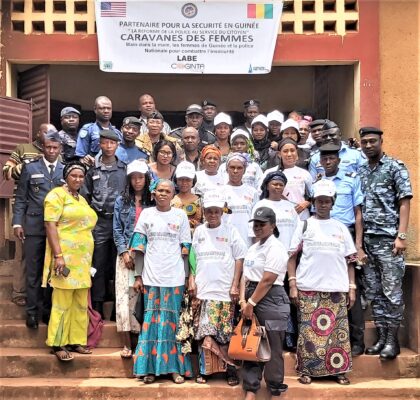
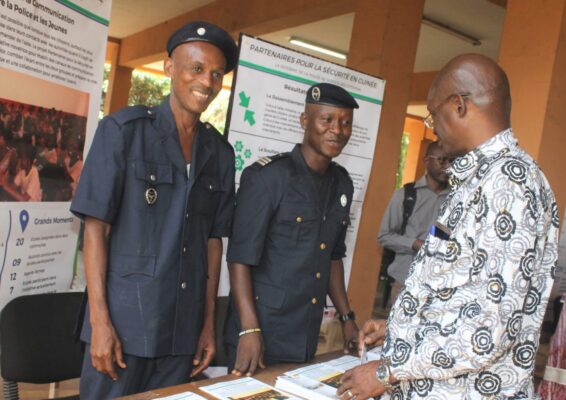
Cliquez pour accéder au Guide en français.
Learn about our 2019 Share Fair
Click the reports below to read about the lessons learned and successes discussed at the Partners for Security in Guinea Share Fair.
Watch our webinar and check out the presentations below
- Partners for Security in Guinea: Best Practices and Lessons Learned
- Community Policing in Guinea
- Women’s Caravans: Restoring Trust
- Police Outreach Initiative
